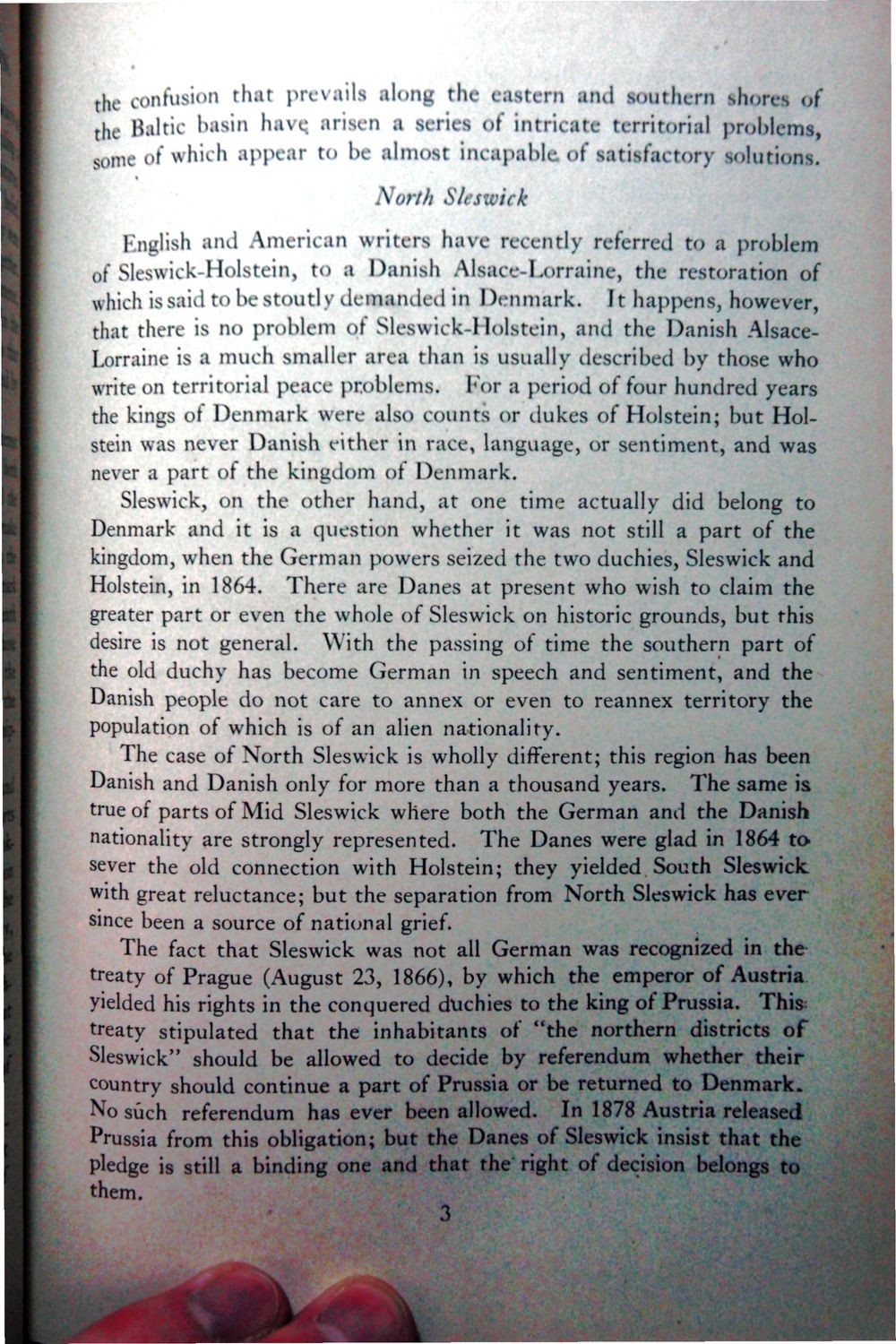| |
| |
Caption: War Publications - WWI Compilation 1923 - Article 20
This is a reduced-resolution page image for fast online browsing.

EXTRACTED TEXT FROM PAGE:
the confusion that prevails along the eastern ..ml southern shores of the Baltic hasin have, arisen a series of intricate territorial problems, some of which appear to l>o almost incapaMe. of satisfactory solutions. North Sleswick I imlish and American writers have recently referred to a problem of Sleswick-1 lolstein, to a Danish Alsace-Lorraine, the restoration of which issaid to be stoutly demanded in Denmark. It happens, however, that there is no problem of Sleswick-I lolstein, and the Danish AlsaceLorraine is a much smaller area than is usually described by those who write on territorial peace problems. For a period of four hundred years the kings of Denmark were also counts or dukes of Holstein; but Holstein was never Danish either in race, language, or sentiment, and was never a part of the kingdom of Denmark. Sleswick, on the other hand, at one time actually did belong to Denmark and it is a question whether it was not still a part of the kingdom, when the German powers seized the two duchies, Sleswick and Holstein, in 1864. There are Danes at present who wish to claim the greater part or even the whole of Sleswick on historic grounds, but this desire is not general. With the passing of time the southern part of the old duchy has become German in speech and sentiment, and the Danish people do not care to annex or even to reannex territory the population of which is of an alien nationality. The case of North Sleswick is wholly different; this region has been Danish and Danish only for more than a thousand years. The same is true of parts of Mid Sleswick where both the German and the Danish nationality are strongly represented. The Danes were glad in 1864 to sever the old connection with Holstein; they yielded South Sleswick. with great reluctance; but the separation from North Sleswick has ever since been a source of national grief. The fact that Sleswick was not all German was recognized in t h e treaty of Prague (August 23, 1866), by which the emperor of Austria yielded his rights in the conquered duchies to the king of Prussia. This treaty stipulated that the inhabitants of "the northern districts of Sleswick" should be allowed to decide by referendum whether their country should continue a part of Prussia or be returned to Denmark. No such referendum has ever been allowed. In 1878 Austria released Prussia from this obligation; but the Danes of Sleswick insist that the pledge is still a binding one and that the right of decision belongs to them. 3 | I I [ I I I
| |